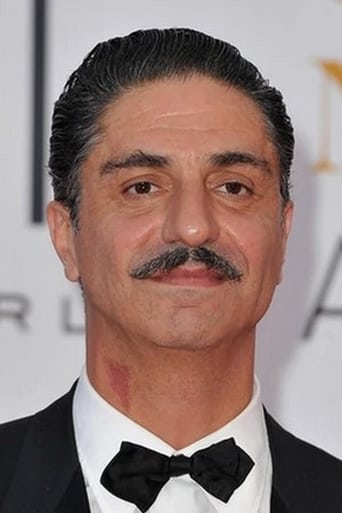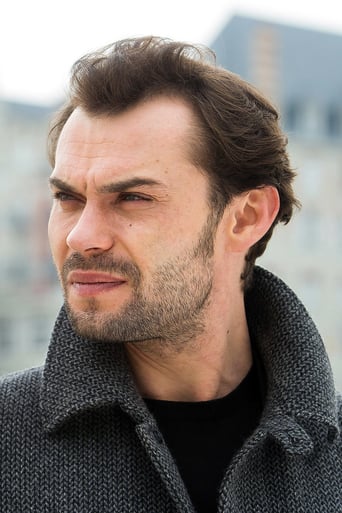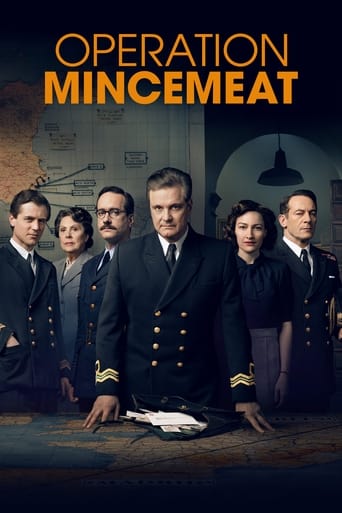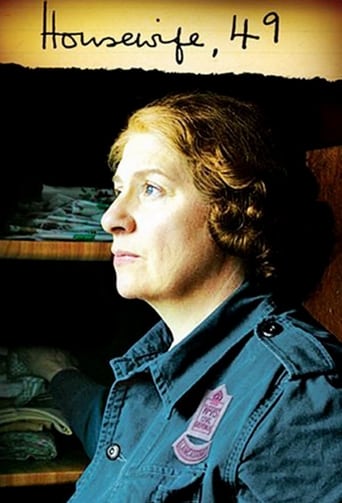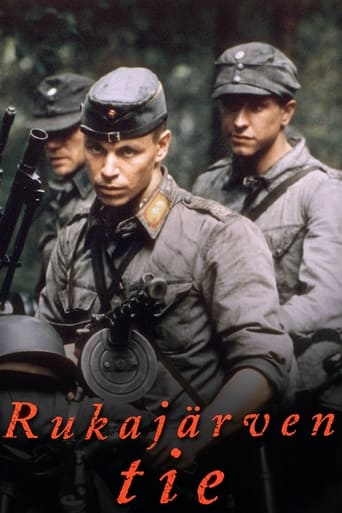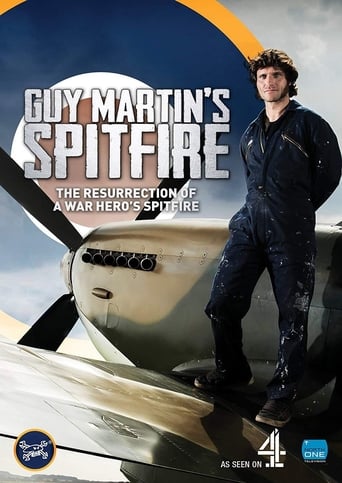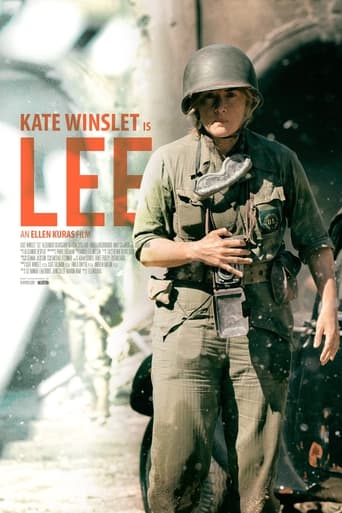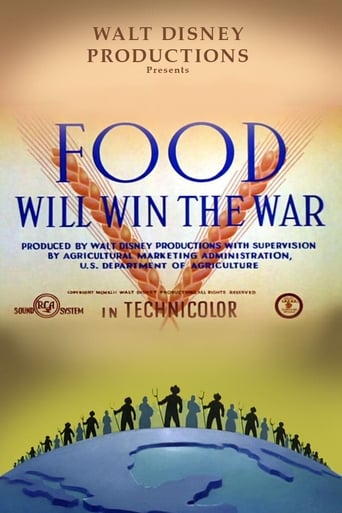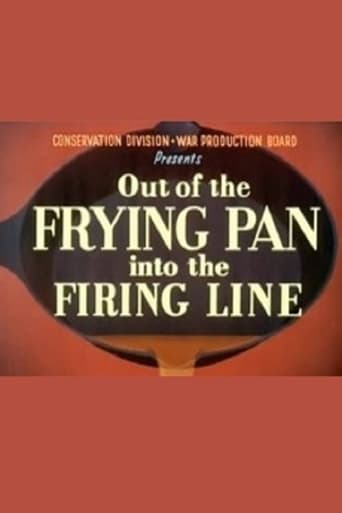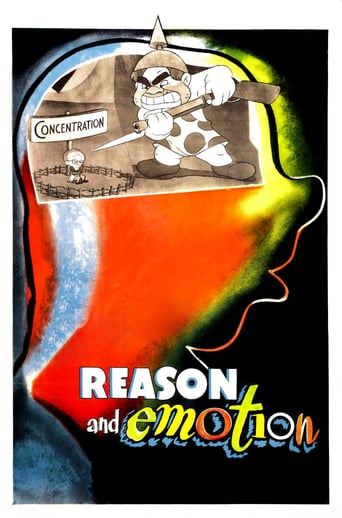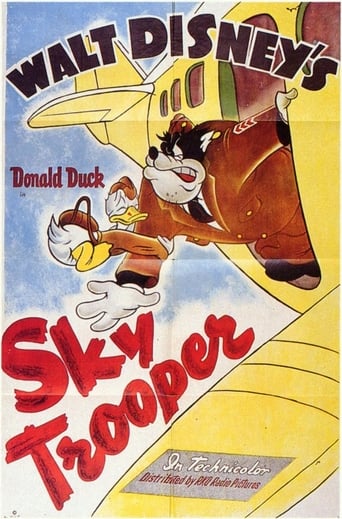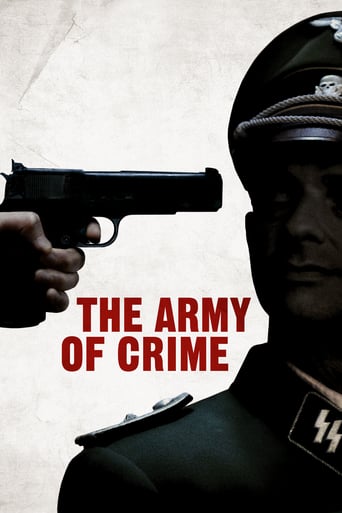
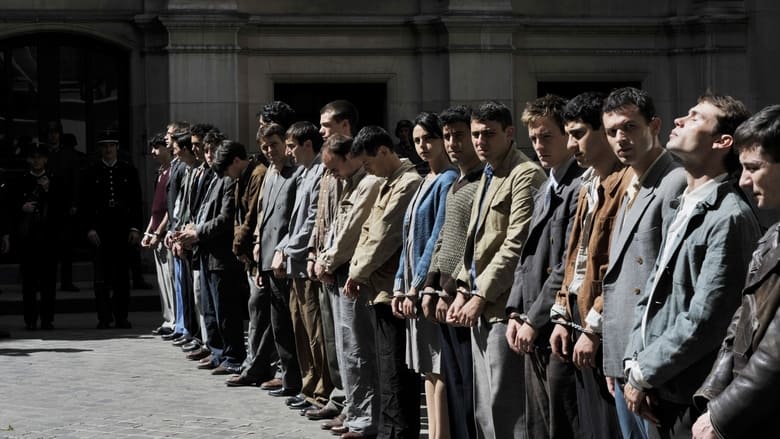
Army of Crime (2009)
This gripping historical drama recounts the story of Armenian-born Missak Manouchian, a woodworker and political activist who led an immigrant laborer division of the Parisian Resistance on 30 operations against the Nazis in 1943. The Nazis branded the group an Army of Crime, an anti-immigrant propaganda stunt that backfired as the team's members became martyrs for the Resistance.
Watch Trailer
Cast
Similar titles
Reviews
The film's masterful storytelling did its job. The message was clear. No need to overdo.
It's a good bad... and worth a popcorn matinée. While it's easy to lament what could have been...
It's a feast for the eyes. But what really makes this dramedy work is the acting.
Each character in this movie — down to the smallest one — is an individual rather than a type, prone to spontaneous changes of mood and sometimes amusing outbursts of pettiness or ill humor.
Firstly I could not feel like watching 40s.It was because of the atmosphere of the movie and actors. For example I did not find the quality of "la vita e bella" or "schindler's list" on this one. Emotions and story chain were not strong and were not made strong by director and actors. Originality was not alive also. By the drama side this movie is not successful. Let's look at it by politic fiction side. I know it is base on a true story but some issues were not taken seriously. "The genocide claim: It is not certain that Turks massacred the Armenians" That was certain in the movie. I think that kind of points damage drama by the side of reality. What I have ranked is the scenario of writers because well written chain of actions and character relations are smooth. Right people and characters even not all are in the right places. Must watch? I do not think so. If you are interested in WWII in France.
I was pleasantly surprised by this film. The movie is very well made. The lighting and cinematography is impeccable. The scenes are constructed beautifully. The casting was brilliant. The actors did a very good job. The direction was good. Robinson Stévenin and Gregoire LePrice-Ringuet were fantastic. Virginie Ledoyen is also maturing into a great leading lady.Aside from the technical brilliance of the film in its fine classic film making, the movie is about heroic men and women who risked their lives for their country even though many of the characters were immigrants. These men and women loved France and died for their rights as well as for the rights of their families and fellow citizens. There were some controversies surrounding this film due to possible historical inaccuracies, yet, I found this movie objective in its portrayal of the characters. There are no long drawn melodramas here but just characters who are compelled to fight for their freedom and the rights of others. I highly recommend this film.
Director Robert Guédiguian uses a large, wide canvas for the characters in The Army of Crime, a deep; nourishing and really affecting French film from 2009 documenting the true story of a group of resistance fighters in Occupied France during The Second World War. Here is a thriller which, despite having its events based on true stories and plights, never for one second feels fabricated nor preordained; allowing for an array of characters to be beautifully balanced in their struggles with the overall situation, those around them and themselves. The film is a testament to the high level of quality films that have been consistently churned out of France in recent years, deeply affecting character pieces.Without wanting to get into a petty discussion on whether The Army of Crime is better than 2009's other World War Two resistance-style thriller Inglourious Basterds, let it be known that as Tarantino's recent outing dealt with similar overall subject material; his characters were, certainly in the case of the heroine, running on a distinct character arc of revenge as those at the centre of all of it adopted roles equal to cartoon characters. The maiming and gratuity these people known as the Basterds were capable of was thrust unto us very early on as these gutsy; no-nonsense; Southern-drawl spouting sadists out to beat; kill; pillage and scalp as many Germans as they can find made itself apparent. Whilst it all sounds like a lot of fun, Army of Crime presents its leads, indeed some of whom are as young as the Basterds and as seemingly angry as the Basterds, but does so in a more natural and realistic light. Observing Robinson Stévenin's character named Marcel, here, as he transforms from a petulant youth whom has a girlfriend and whose hobbies include swimming into a creepy and unnerving individual, is more rewarding than having comic book creations already established to be of that ilk bully and push their way through specific obstacles.But Guédiguian does his best to refrain from giving us a character to obviously align ourselves with, indeed resisting the use of a specific protagonist. Instead, he spreads around the plight of these people pretty evenly: men; women; French-born individuals; Armenian immigrants; youngsters and elder people, there is no prejudice towards one 'type' of person being braver or more heroic or getting more of a study. For some, this technique will feel sporadic; making the film come across a weighty and quite heavy piece without an individual to truly latch onto resulting in some audiences being turned off. Heading in, I had no knowledge of the true story element to proceedings; but it would go a long way in describing the natural sense Guédiguian gets across. Not knowing how everything turned out and not knowing what became of most involved is, I think, a pleasure amongst many to be had out of The Army of Crime.The film's documenting of violence and how violence and the hatred of an occupying force in the Nazi soldiers can combine in propelling people to psychological places they might well have been unsure previously existed within themselves, is an interesting side-dish for The Army of Crime. Some characters slip into a brutal, hate-filled stupor easier than others; blasting their way through codes of morality in a rage of fury like nobody's business. For others, that transition is more difficult but not necessarily impossible. In the case study of young Frenchman Thomas Elek (Leprince-Ringuet), much is set up that his temperamental attitudes and short fuse exists and can rather easily get him into trouble. After being berated with an anti-Semitic remark by a fellow class-mate, he sits in the principal's office and is forced into hearing his highly attractive prospects for the future in front of him laid out, the light dim enough to have half his face covered by pitch darkness, the other half in brilliant light. The combination of the authoritarian individual speaking of the future and later roles the young man may very well adopt combined with that steely expression complete with use of lighting suggests a link to more than one possible future.But Thomas is not as much-a live wire as the aforementioned Marcel, a rag-tag; leather jacket sporting; rough and ready looking young man whom gets highly agitated early on at a tailors over seemingly nothing. He hates the Germans; loves his swimming and maintains an odd, semi-aggressive relationship with girlfriend Monique (Naymark). There seems to be an initial element of seemingly harmless shenanigans behind the first time Marcel engages in illegal activity of a resistance sort, when hundreds of red pages are dropped from a two storey building encouraging rebellious behaviour against the Germans. But this occurrence plays a more important role in highlighting Marcel's advances through the film, in the process taking everything far more seriously and when the snatching of his father by the German's occurs, moves his plight into a more personal realm.One individual, a middle aged man named Missak played by Simon Abkarian, is someone with prior experience of conflict between nations; he swears he will not kill anyone whilst involved in the resistance, and the pain on his face is agonising early on when he confesses to having to leave behind his fellow inmates at a local German built prison housing other arrested intellectuals, even if it meant saving his own life. The praise that he receives later on when a particular act of bravery, although essentially rendered heroism by those within the circles given the scenario, does further stoking to his morally torn core. Director Guédiguian even finds room to encompass that old 'two sides of the same coin' routine when, around a table (during which these exchanges usually happen), factions within the group demand different things out of the entire process; degrees of antagonism lead by a female character who wants her voice heard. The film is a rewarding exercise in both character study and slow burning drama.
Another résistance tale, excellent settings, clothes, etc., but a very flat plot that never grips you. That, plus the actual length of the film make it feel eternal. The theoretical "good guys" - the résisrance, are mostly communists, quite a few of them rather sinister. One feels that their ideas are very similar to those of the Nazis they're trying to fight and, frankly, it's six of one, half a dozen of the other. And,like so many French films, this one tries to rewrite history. Because, much as the French hate to admit it, most of the population just wanted to survive the war and disliked the résistants, who provoked dangerous German retaliation. Of course, after the war EVERYBODY turned out to have been in the résistance and had behaved heroically. All in all, a disappointing movie. Much better stuff has been filmed about that period of French history.
